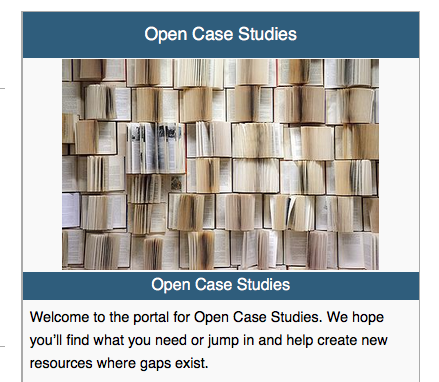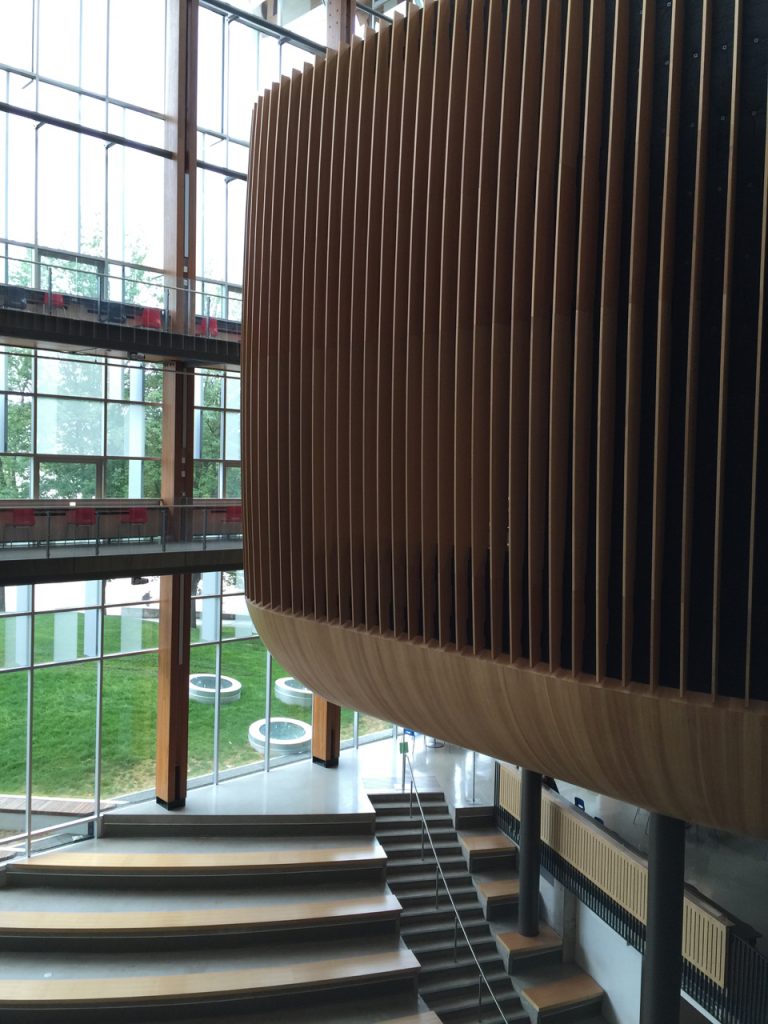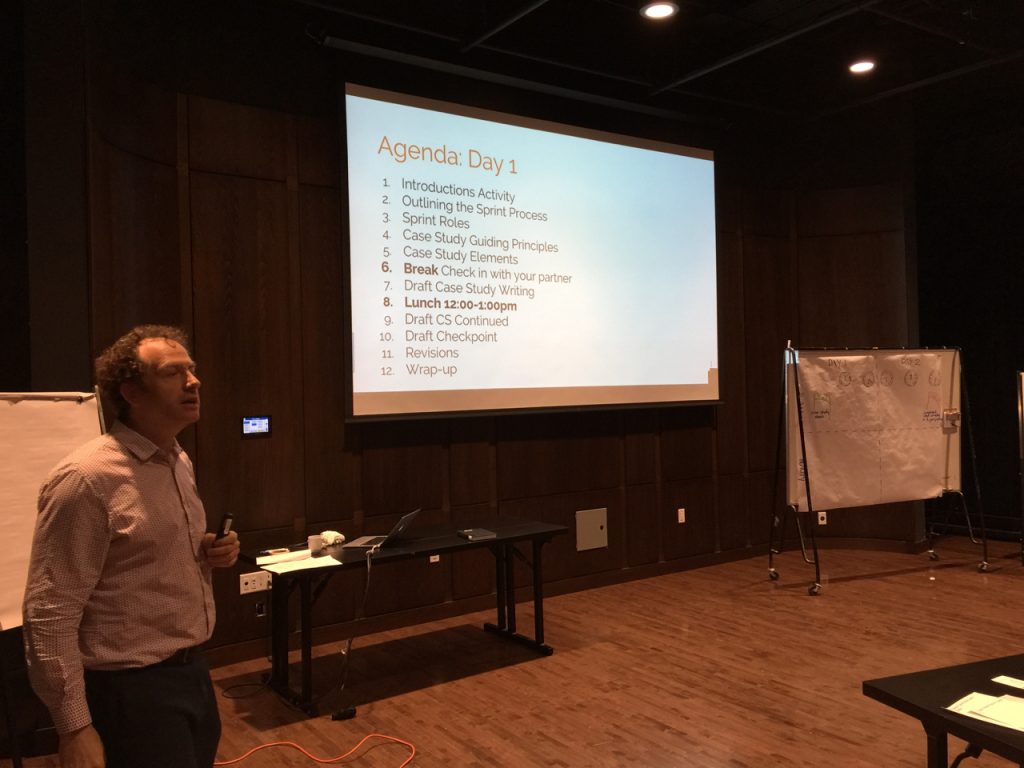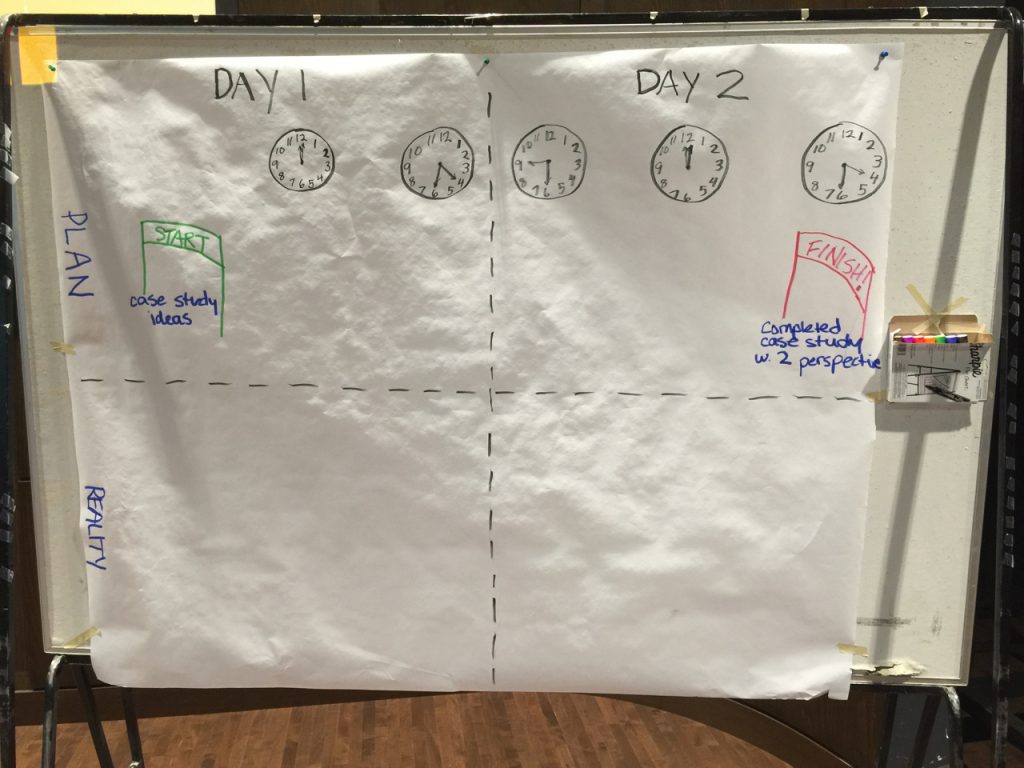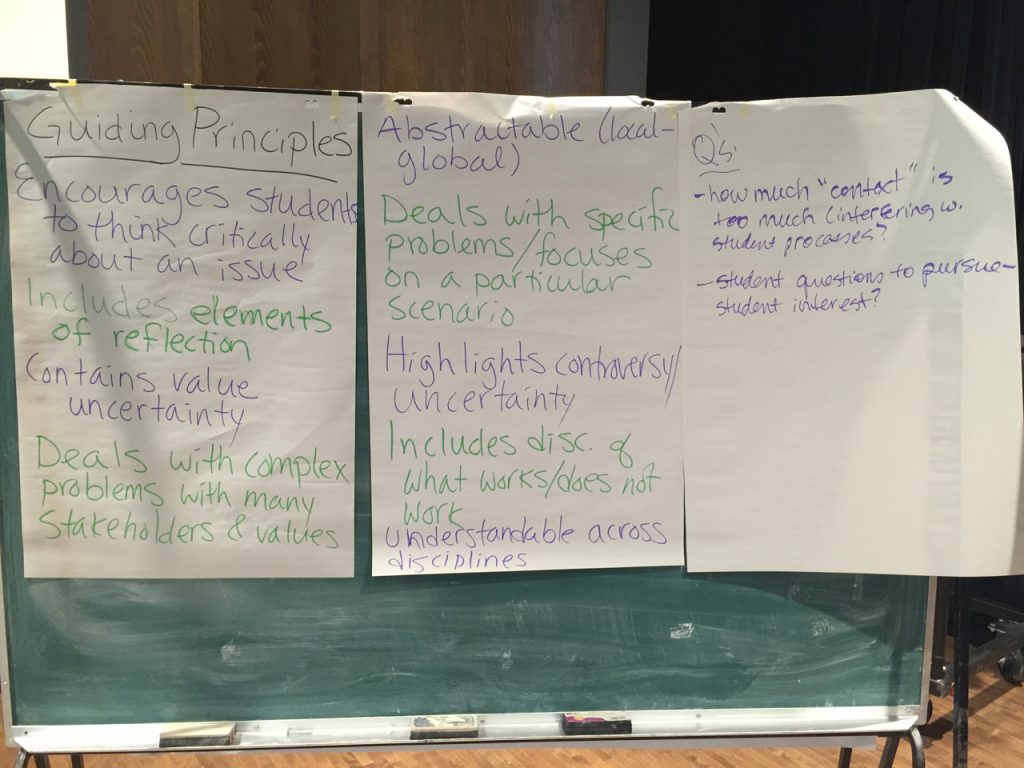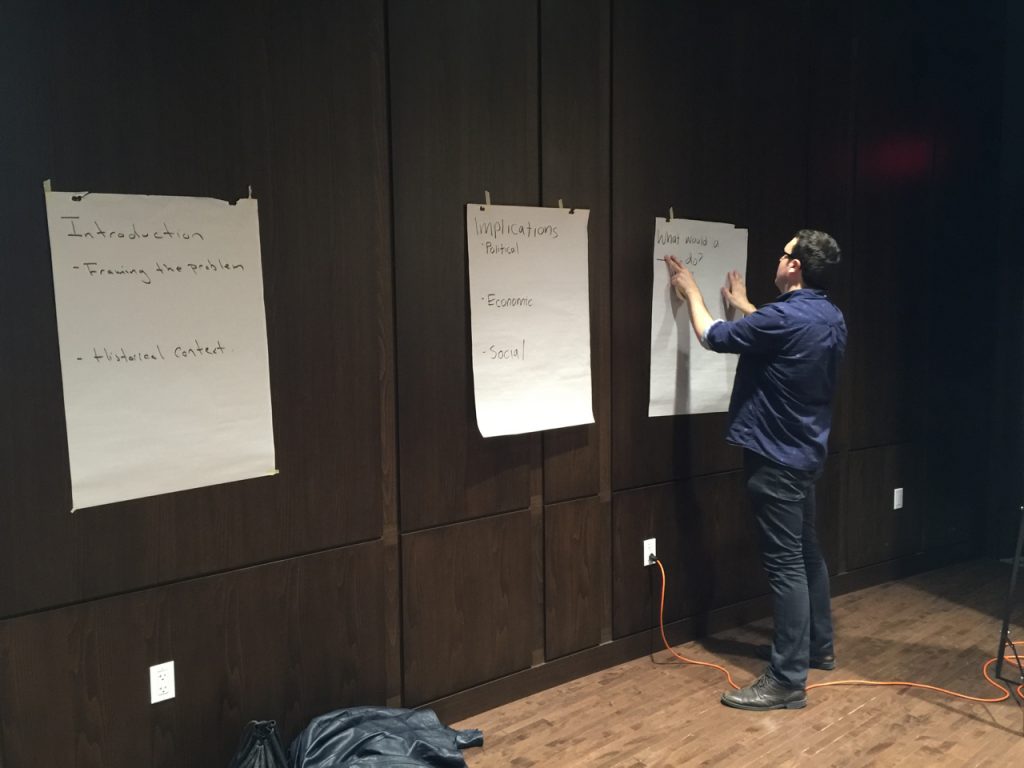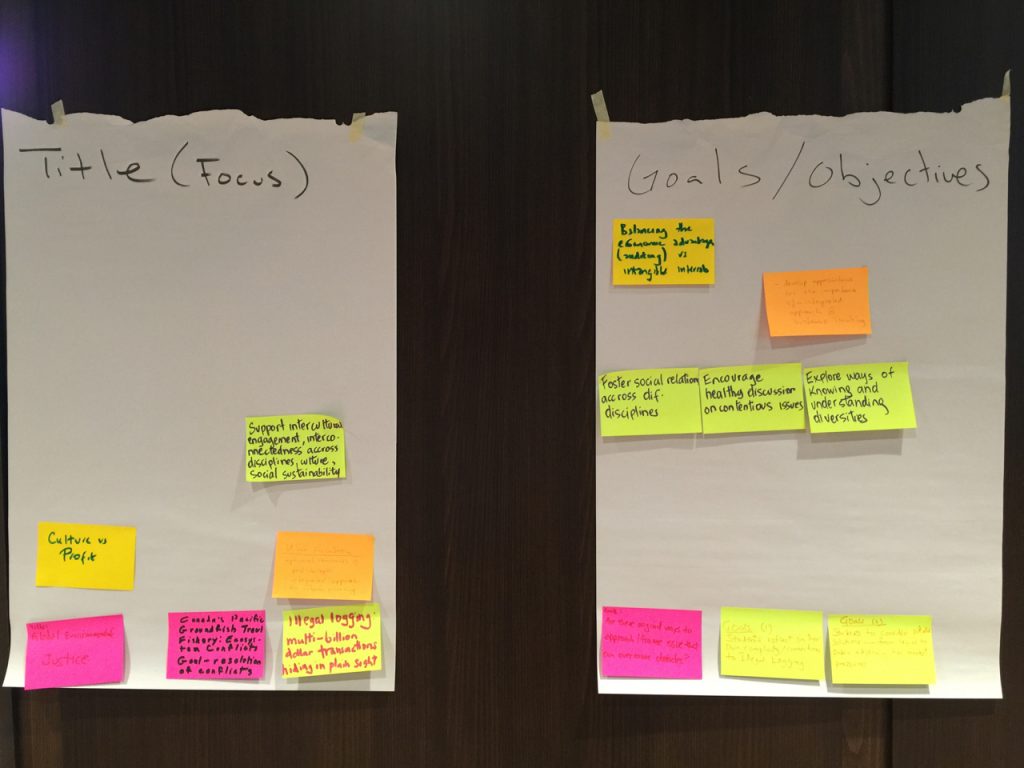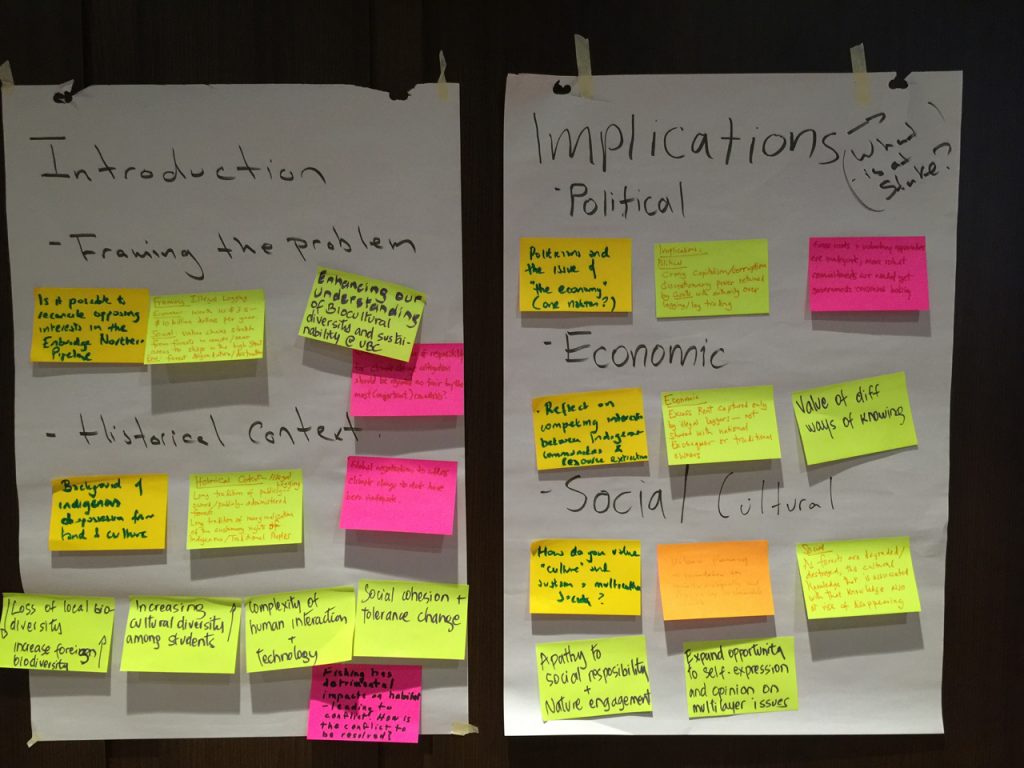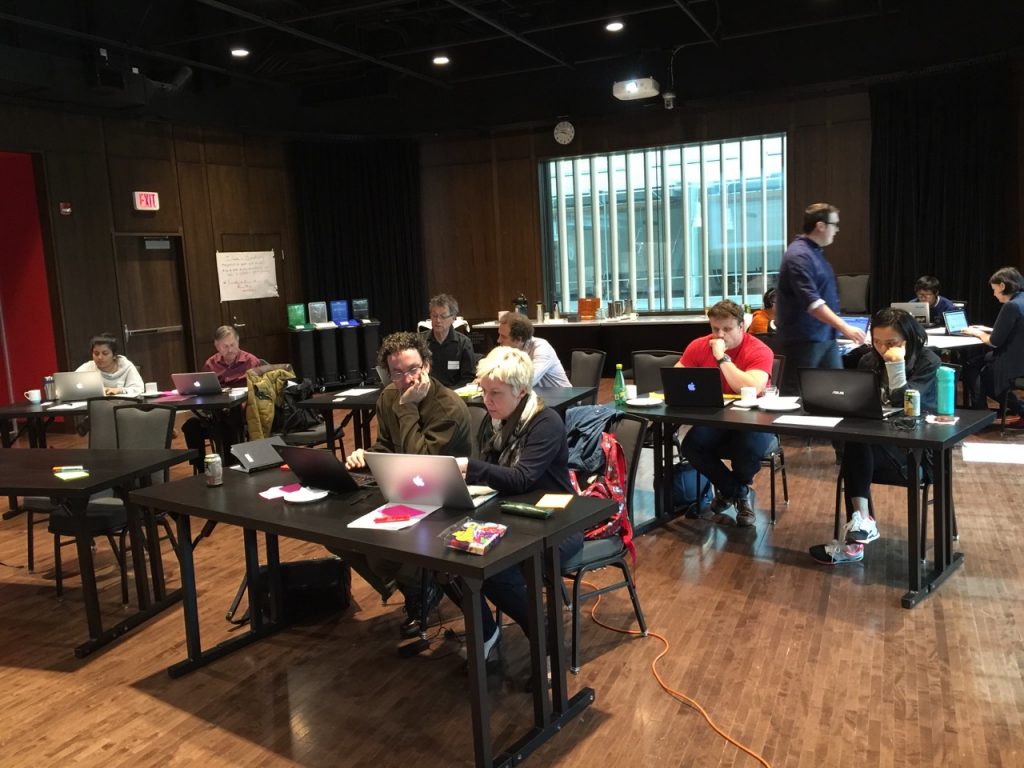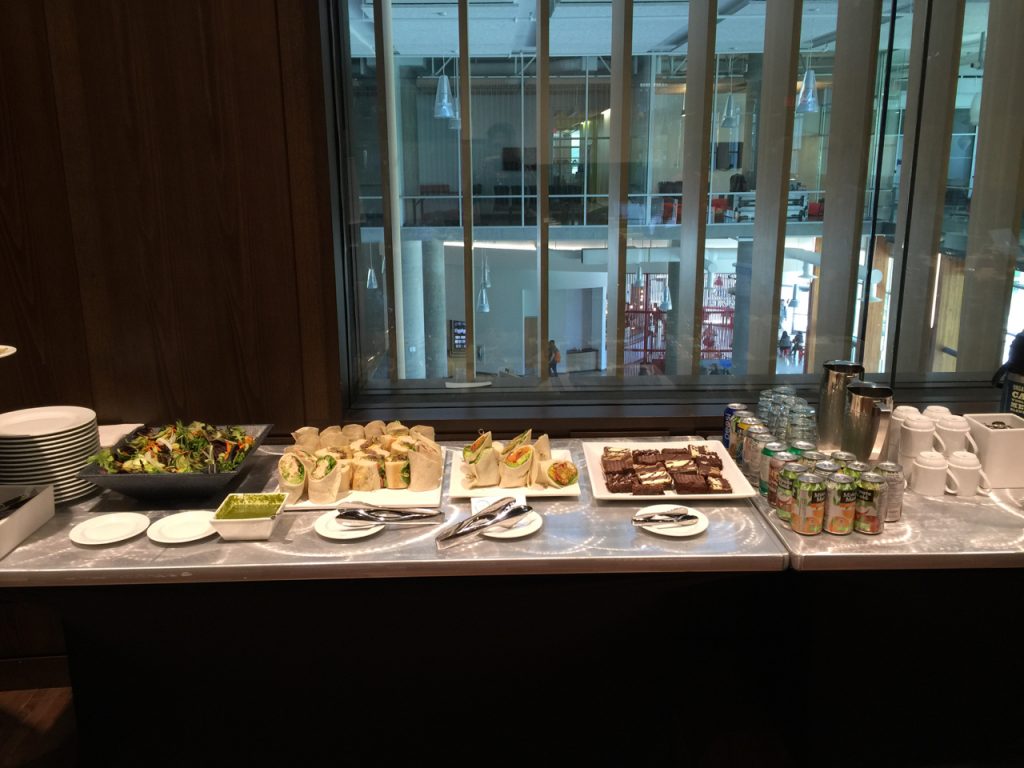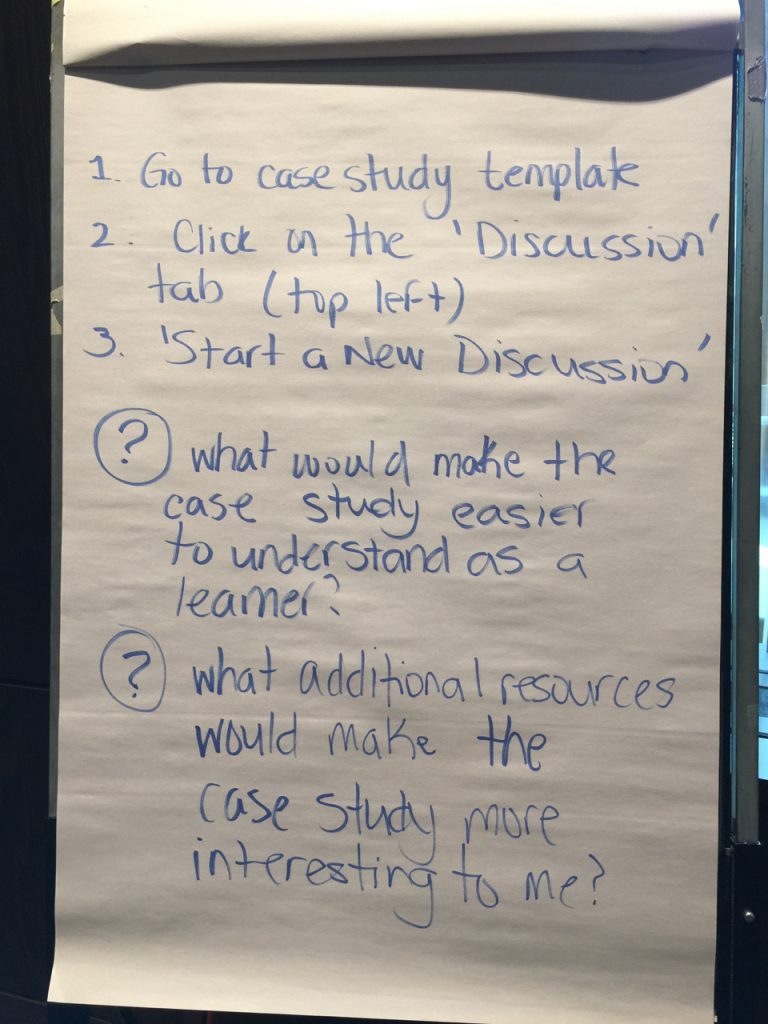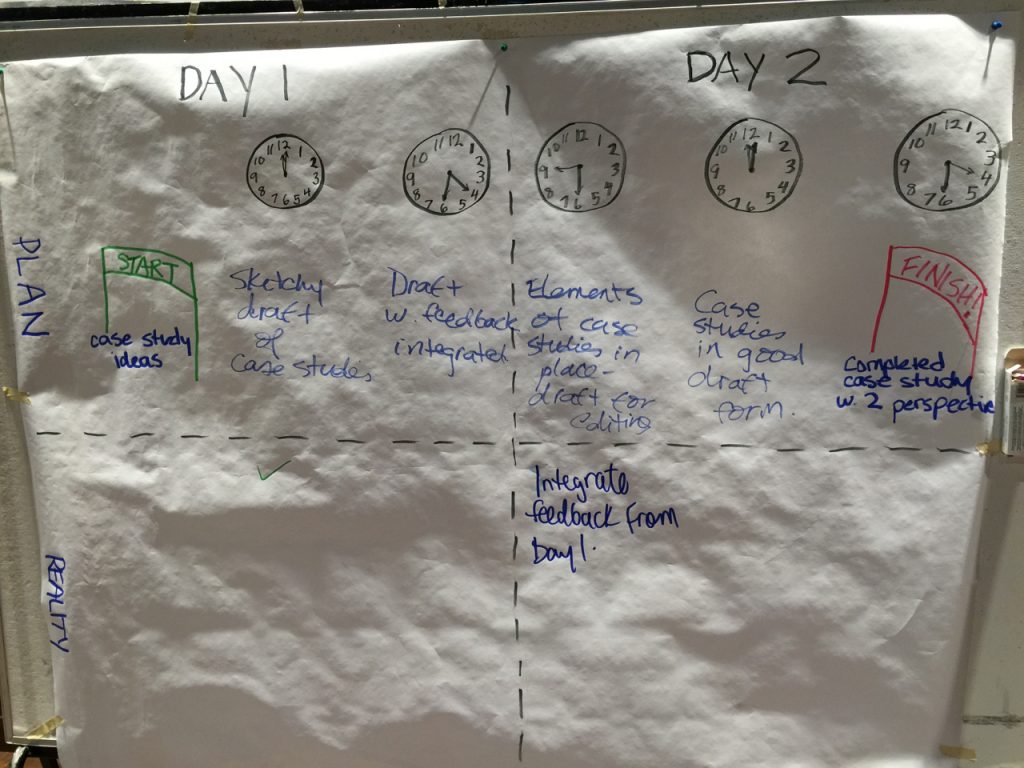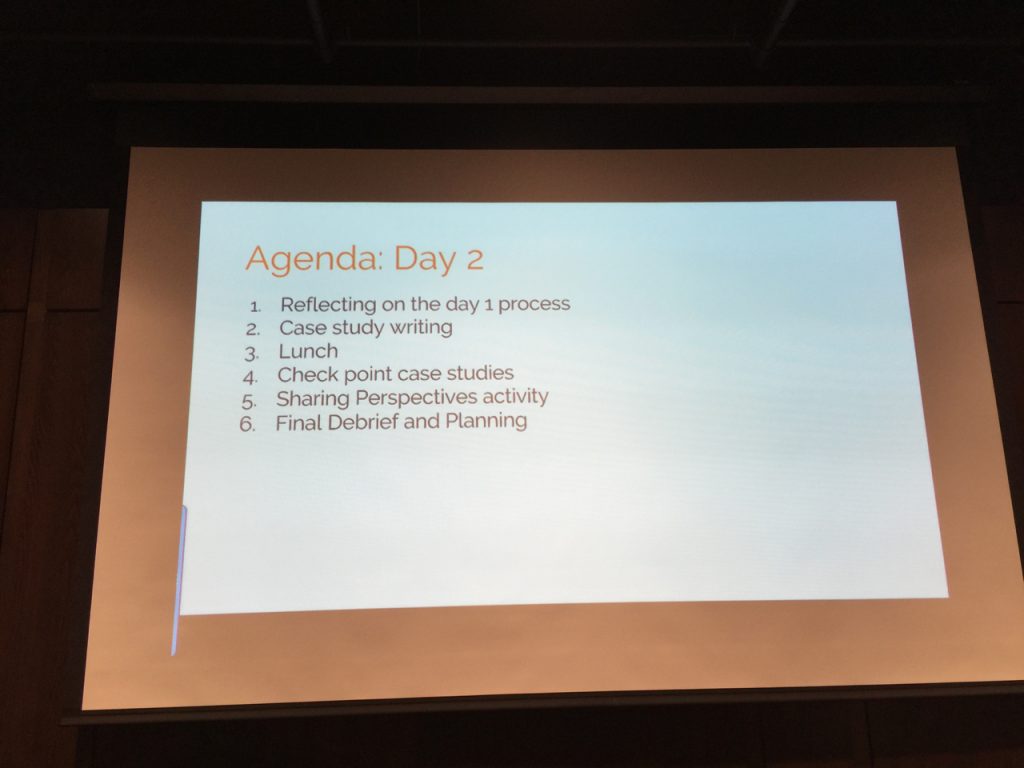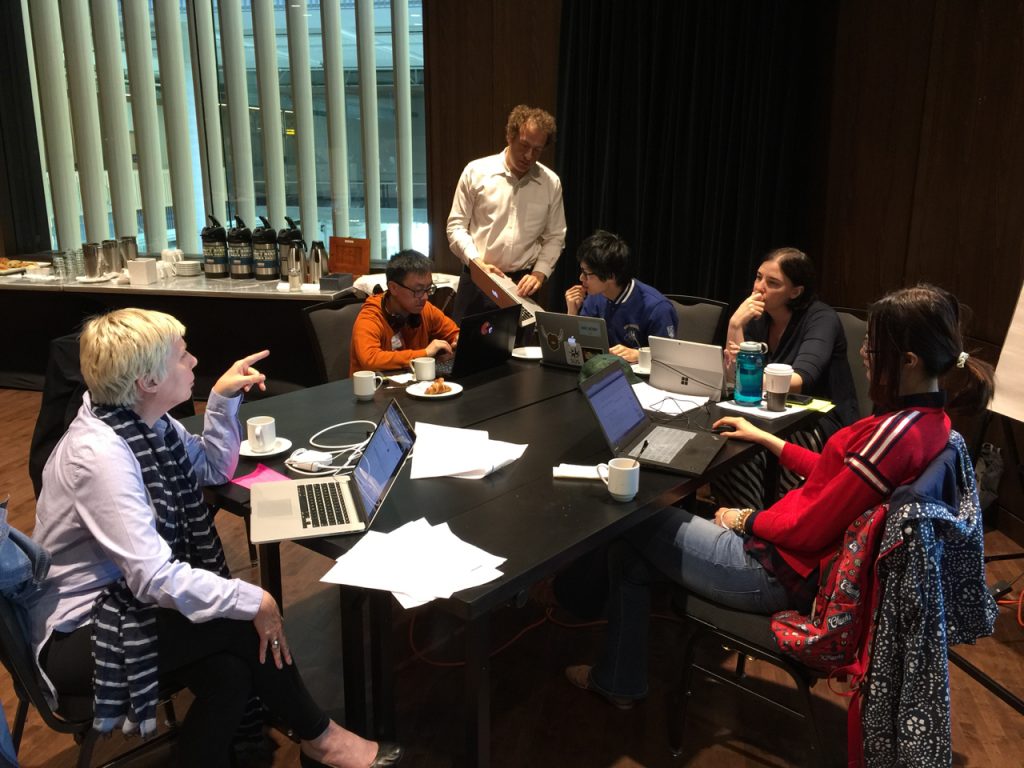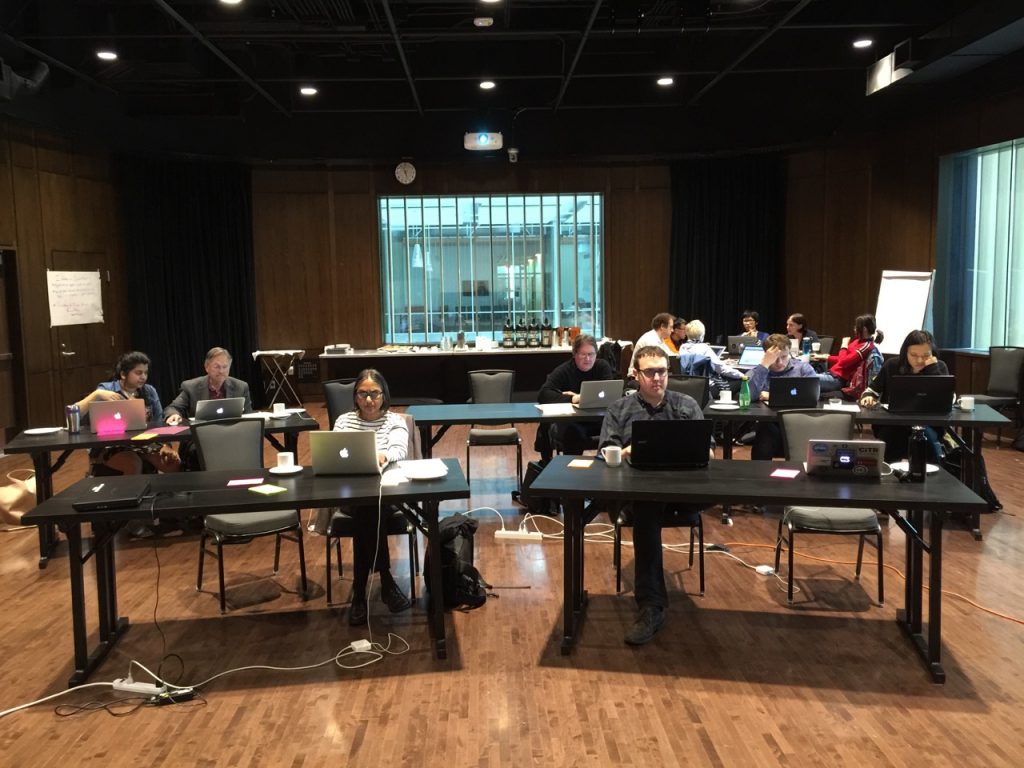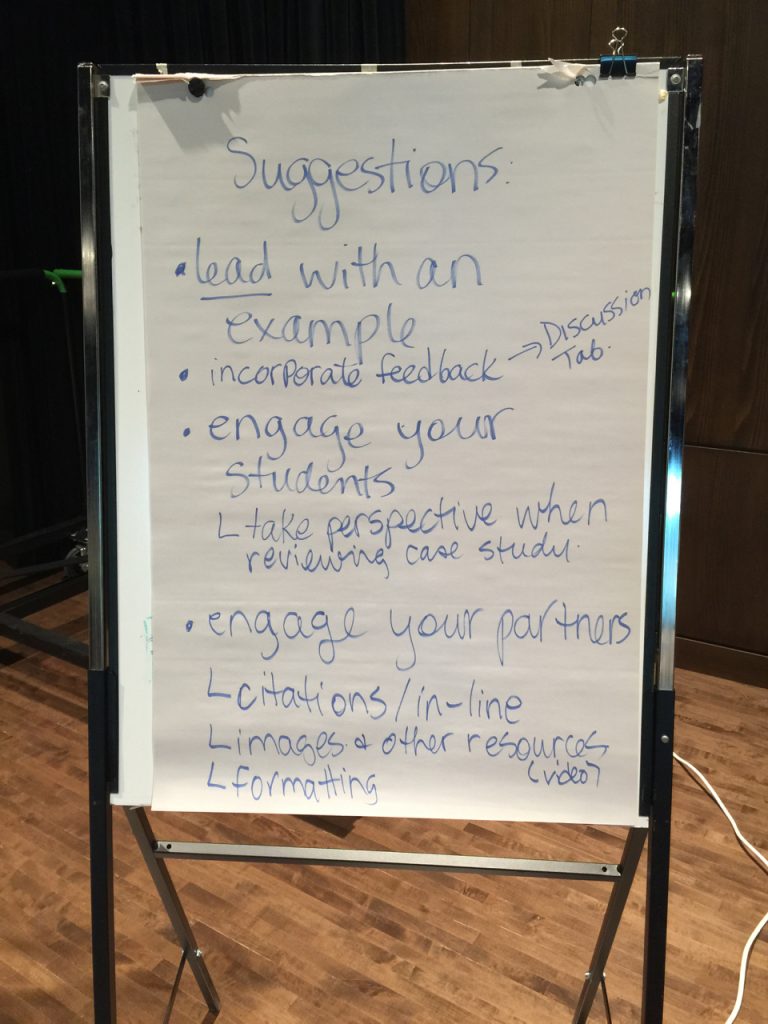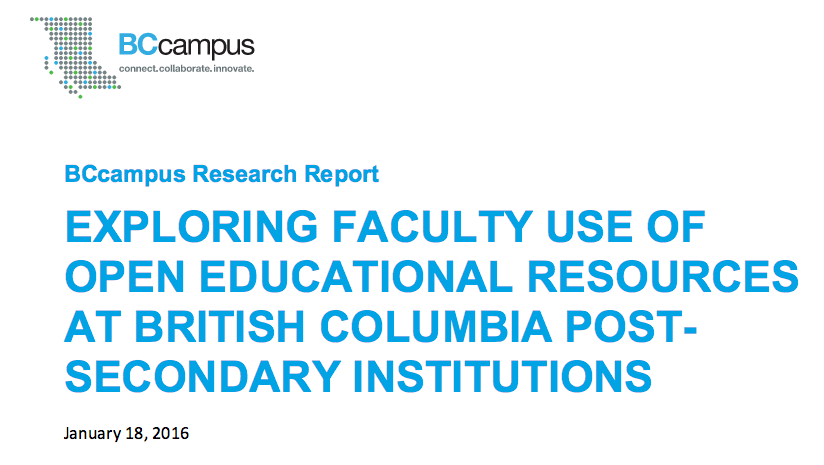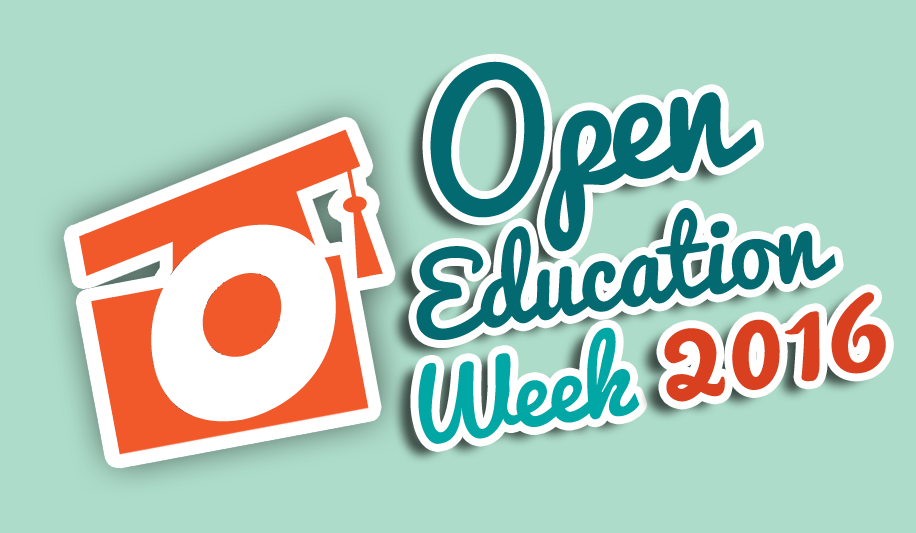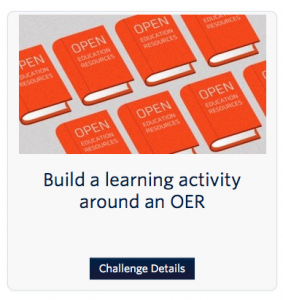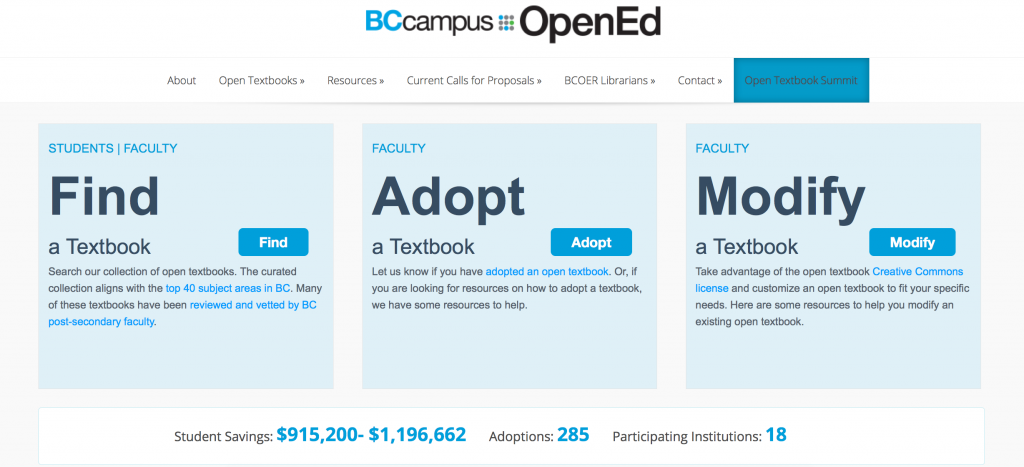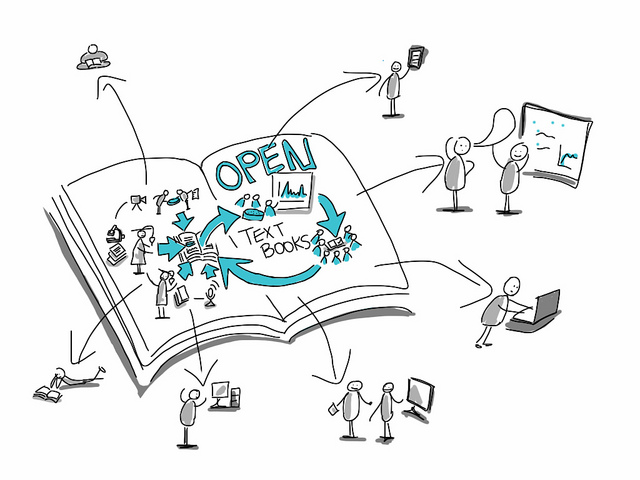
Open Textbooks, by Giulia Forsythe on Flickr, licensed CC BY-NC-SA 2.0
After talking about it for a few years, I am finally able to start working on an open textbook for introduction to philosophy courses. There are a few of us working on it already, and we’re going to need all the help we can get…so this post is to introduce the project and talk about how others can get involved.
Open textbooks
First, what is an “open textbook”? The easiest way to think about it is that it is like any other textbook except in two crucial respects:
First, it is free of cost to students. There is no price tag. This comes with another implication: we are doing this for free ourselves. There is no publisher who is paying us to create the textbook, and there are no “royalties.” But frankly, I can’t imagine ever making much off of a textbook anyway (how many new textbooks are there a year, and how many actually make money? I don’t know but I am skeptical of it being terribly lucrative in philosophy).
Second, open textbooks have an “open license” that allows others to reuse, revise, remix it with other things and release new versions publicly for others to use, revise, etc. The most common open licenses for educational resources like this are Creative Commons licenses, which come in several versions. See this CC page for a general discussion of the licenses and different license types; the University of British Columbia Creative Commons Guide has further information, including a comparison chart. The license we will be using for this textbook is the most permissible of the CC licenses that require attribution of the original content creators: CC BY, which lets content be used and revised by anyone for any purpose as long as the original creators are attributed.
Why do this?
I can’t speak for others, but I myself have two main motivations, having to do with the two characteristics of open textbooks given above.
- Saving students money
- Textbooks are expensive, and getting more so as time goes by. There is a good deal of research on open textbooks that explains the costs to students and how this affects them not just financially but pedagogically (e.g., when they go without textbooks because they are too expensive, or choose what courses to take based on textbook costs). I am co-author on an article whose literature review details some of this literature; I’ll try to remember to link to it here when it comes out (it’s in press right now). Or you can check out this 2016 research review on open textbooks by John Hilton (open access), though it doesn’t have information on costs.
- I also get frustrated that students are paying a lot of money and I might not be using the whole textbook. Which leads to…
- Ability to revise the book
- Only want to use Chapters 3 and 8? Great–delete the rest.
- Want to add in some of your own interpretations, or change what you think might be misleading, or add in a graphic you have created that helps illustrate an idea? Excellent–go ahead and change what’s there.
- Can’t understand why the textbook excerpted Mill’s On Liberty in a way that leaves out that crucial part? Put it in!
- Dislike the example used to illustrate a point because it only speaks to a limited audience of students and may not make any sense to others? Change it!
- etc.
Basically what an open textbook does is provide a starting point that you can adjust if needed…or not. You can use it as is, or you can make it fit your course or context better. I want to be involved in a project that provides this starting point for myself and others.
For some, creating educational resources that are used by others can be considered for merit, tenure and promotion. That is going to depend on your college or university context.
Rebus open textbooks
We are working with an organization called The Rebus Foundation, a Canadian non-profit that is made up of wonderful people who are doing great things with digital publishing and open textbooks. We are part of several open textbook projects that are creating new models for publishing open textbooks, through connecting people into a community to collaborate on shared projects.
The Rebus open textbook projects are all being discussed on the Rebus Community Forum. There you can see and contribute to multiple textbook projects. Each is going to need help in the form of reviewing and copyediting as well as writing, so even if you just want to contribute a little without writing anything, that’s possible too. All help is appreciated.
Some basic parameters
Please see this document for an explanation of some of the basic parameters of the intro to philosophy open textbook, some of the ideas of what, generally, it should be like and why. The following is copied and pasted from part of that document:
This Open Textbook “Introduction to Philosophy” should be, firstly, an accessible introduction to philosophy, suitable for college or university students taking a philosophy class for the first time.
As such, the book should:
- cover a broad range of the fundamental ideas in philosophy
- present these fundamental ideas in a clear and accessible way
- focus (first) on presenting existing arguments, rather than making novel arguments
As an Open Textbook, this Introduction should be considered the starting point: a reasonably complete (eventually), and relatively accessible “map” of the important intellectual traditions of philosophy.
But it should also be considered a framework upon which further (open) explorations could easily be built, further sections or additional materials added, by a professor for a particular class, by students as part of course work, or by future contributors (or current contributors) to the project itself.
Note that there is a table of contents on that document; we are not saying nothing else could be there. That is what we have come up with at the moment. As new people are added to the project, new sections might be created.
The process
I am serving as the main editor for the whole thing, but mostly what that means is being the central organizer. I will be writing some parts, but this is a joint venture that will come to fruition from the work of many people. That way, no one person has to do a great deal of work but it can be spread out. We’re all doing this on a volunteer basis, after all.d
Here is a list of tasks for the book.
I will be the overall editor, but each section of the book (e.g., ethics, social and political, metaphysics, philosophy of mind) will have a section editor who is responsible for that section. That means helping to find people to write subsections, arranging for others to review/comment on what has been written, ensuring those texts are copyedited (by themselves or by volunteers), etc.
Here is a post describing what we are envisioning for section editors.
We have already started discussions on general topics to include in a textbook for introduction to philosophy courses, and we found that we were rather scattered…so we have decided to start by focusing in on two sections. I asked the group who would be willing to be section editors, and we came up with two volunteers:
Ethics section: editor George Matthews (see here for a discussion board devoted to that)
Aesthetics section: editor W. Scott Clifton (see here for a discussion board devoted to that)
So those are the two sections we’re making a push on at the moment, but I would also love to hear if anyone else would like to volunteer as a section editor.
How do I get involved?
Does this sound intriguing? Or even better, are you excited to get started? Here are your next steps:
- Join the Rebus Community!
- Peruse the conversations we’ve had so far on this textbook if you want, and add your thoughts. It’s a long thread, but you can skim it! Introduce yourself and what you’re interested in about this project.
- Add your name and interest area to our spreadsheet (go to the ‘people’ tab at the bottom)
- If you would be willing to write something for the Ethics or Aesthetics sections, we are particularly interested in hearing about that right now. You can go straight to the discussion threads for those:
- Email me if you have questions: c.hendricks@ubc.ca
- Spread the word!!
